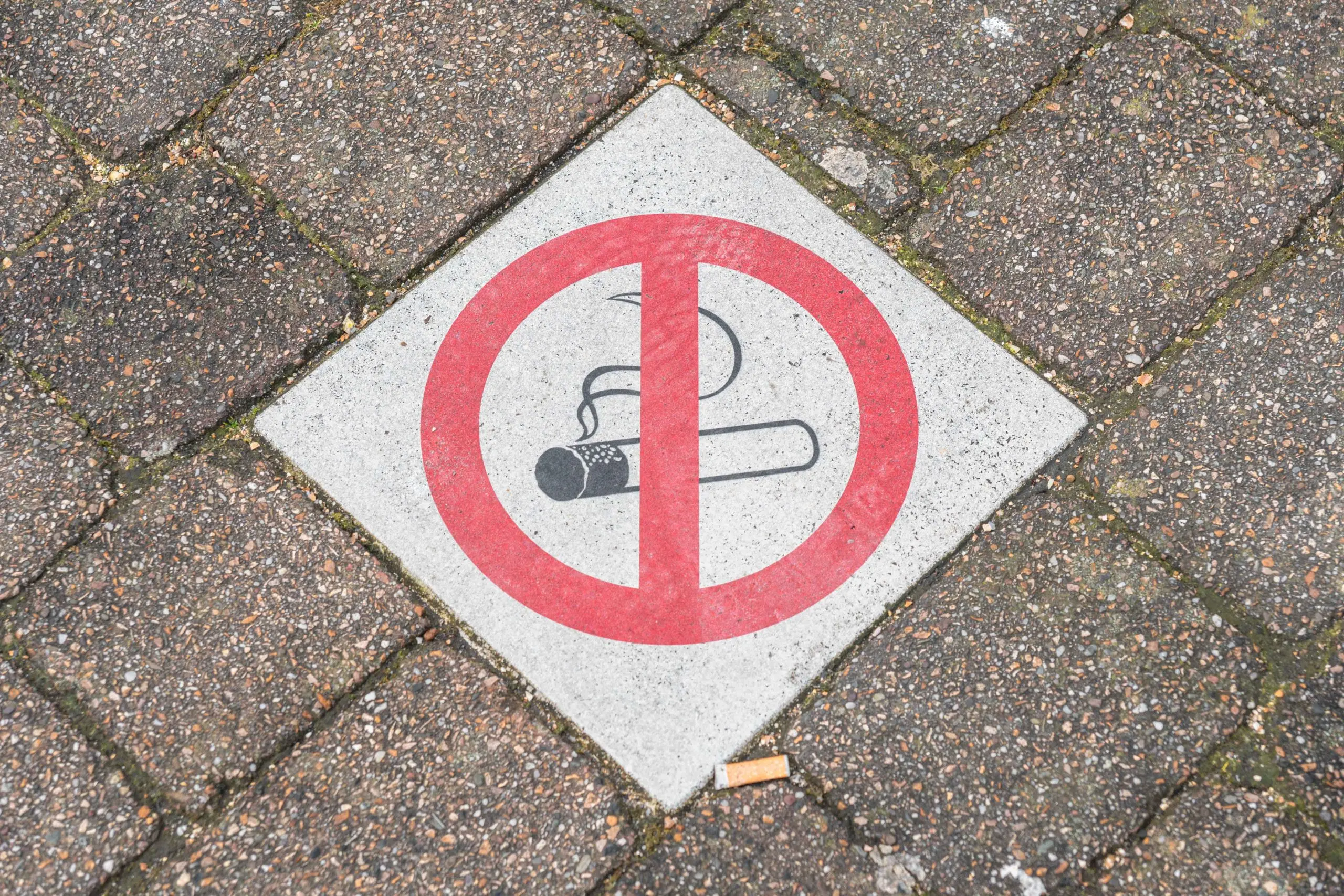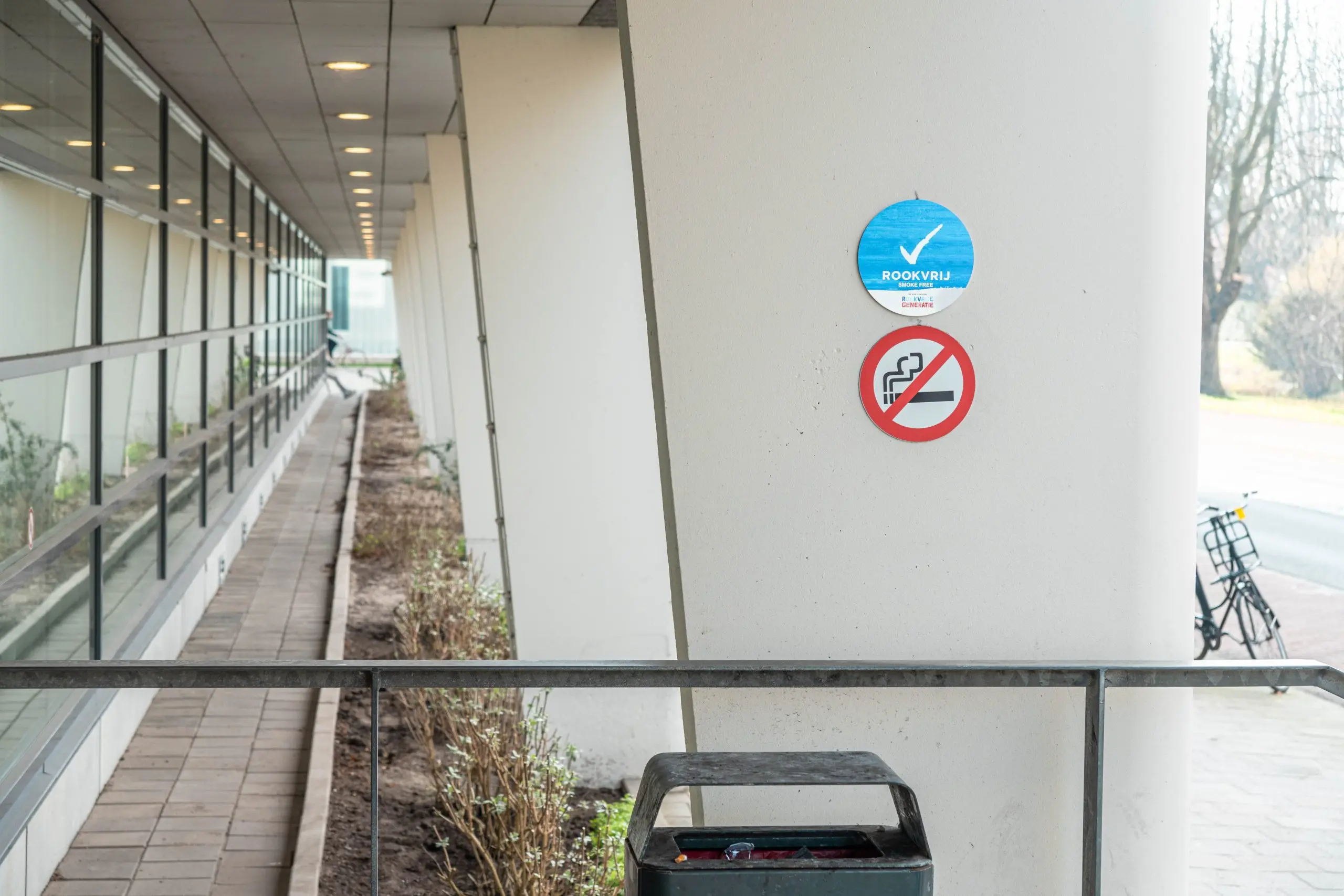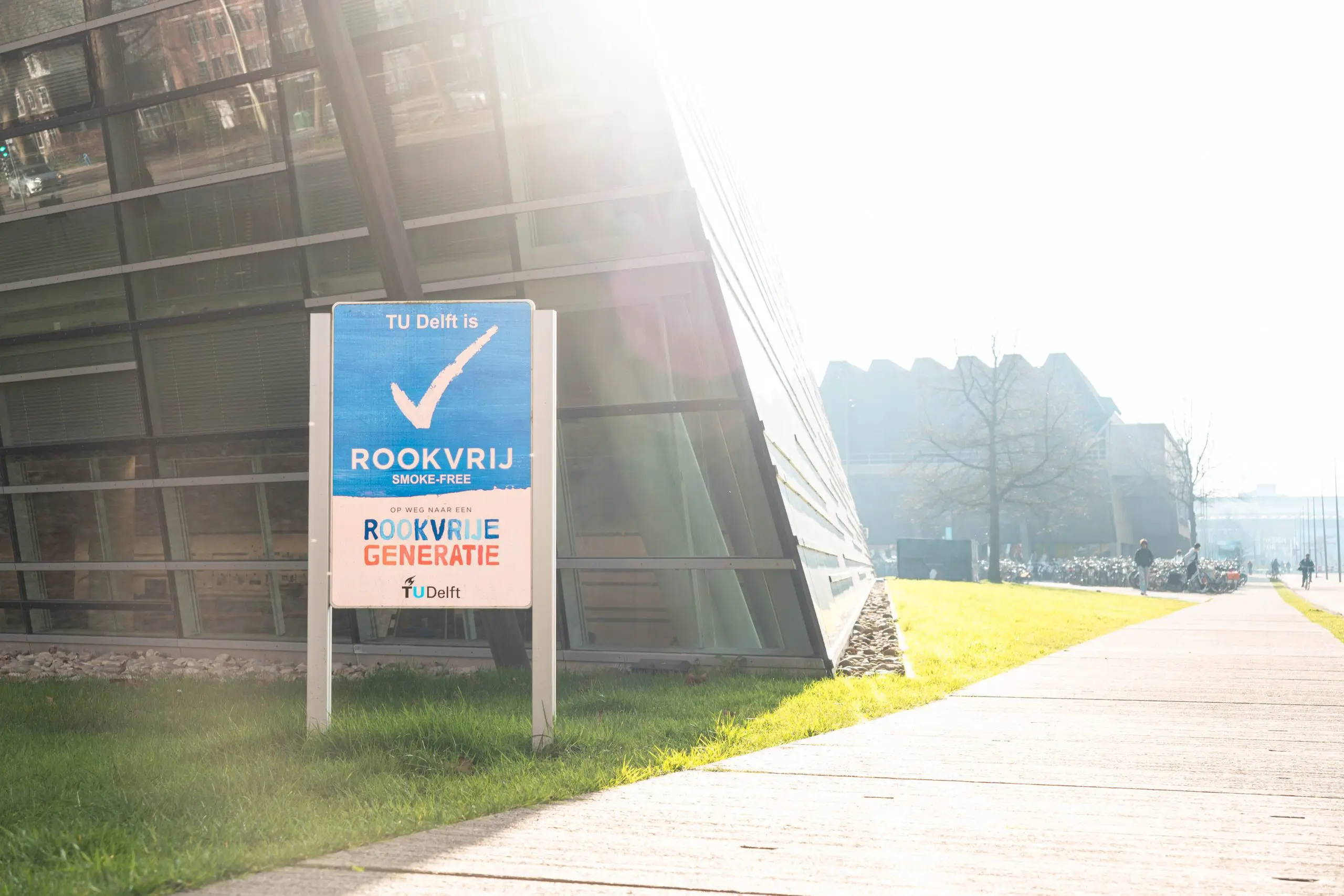Higher education institutions have come to the conclusion that campus smoking bans are unenforceable. They either pay the fines or contest them. But the ministry insists they need to act on their ‘responsibility to society’.
A cleaning action by TU Delft staff association Prometheus produced lots of fags, despite an imposed smoking ban on campus in 2023. (Photo: Sicco van Grieken)
Who actually enforces the smoking ban on the TU Delft campus? Annemiek Zonneveld, director of HR, writes: ‘A passive smoking policy has been introduced. This means we support it and underline (promote) it where necessary, but do not enforce it. So no enforcement task has been explicitly appointed.’ Nor can anyone in human resources or in campus real estate (CREFM) recall a fine for smoking on campus.
In Utrecht they had different experiences. The Utrecht University has already been fined 1800 euros by the Netherlands Food and Consumer Product Safety Authority (NVWA) because people were seen smoking on campus. But as DUB reported in December, the university appealed against these penalties.
It argues that the ban is simply not enforceable. The campus covers a wide area and are intersected by strips of public space where the ban does not apply. It would take hundreds of enforcers to patrol the site.
The University of Amsterdam and Amsterdam University of Applied Sciences also stopped enforcing the ban this calendar year. They have received several thousand euros in fines, but point out that permanent enforcement would mean annual costs of two million euros. Their view is that this is disproportionate. Instead, they have put up humorous no-smoking signs on campus.

Smoking areas removed
Campus smoking bans came into force in September 2020. Smoking inside buildings had long been prohibited, but the full campus bans meant people were not allowed to smoke in outside areas either. All ashtrays and smoking areas were removed.
That sometimes leads to problems. Wageningen University & Research refers to ‘a sea of cigarette butts’, as smokers leave their stubs lying around or toss them away in green spaces. The university now organises clean-up operations, which would not be needed if everyone complied with the ban.
Checks
The NVWA is the authority that imposes fines in the event of violations. “We check whether higher education institutions are complying with the rules, as the law now states that no one can smoke on campus”, says a spokesperson.
She insists that there is some leeway in how the rules are enforced. Higher education institutions have extensive grounds and there’s always a chance someone could light a cigarette in a quiet corner; as an institution there’s not much you can do about that. “But if there are people smoking right outside the entrance and security fail to act, or teachers simply join in, then it’s a different matter.”
The NVWA does not provide details of the number of fines imposed on institutions, nor does it go into the practical objections. For that information, we have to consult the Ministry of Health.

Response
The ministry insists that the institutions are able to enforce the ban. “No one expects higher education institutions to organise anti-smoking patrols 24/7”, says ministry spokesperson Ruben van Dorssen. “But we do expect adequate action when it comes to signs, detection, information and policies. Institutions should also take smokers to task where appropriate. These are things we continue to expect.”
Zonneveld (HR) sees addressing smokers as a mutual responsibility: ‘We assume the self-correcting ability of the organisation, which makes addressing each other on behaviour a starting point. This is a behavioural change, which takes time. The smoke-free campus started in the middle of corona time, when few staff and students were on campus. The actual change in behaviour only came into play after that.’
Does Van Dorssen acknowledge the practical objections raised by the institutions? “In terms of enforcement, there has been plenty of understanding since day one. We know it’s hard to combat all smoking on large sites”, Van Dorssen points out. “But the smoking ban is also part of the institutions’ wider social responsibility.”

Smoke-free generation
Van Dorssen has the impression that the smoking ban is increasingly becoming part of normal life. “Today’s students are used to learning in a smoke-free environment before they come to university. There is still a pressing need to push ahead with making school playgrounds, educational settings and other environments for young people smoke-free, as long as the impact of smoking on our public health is still so huge.”
Paul Blokhuis (ChristenUnie), state secretary at the time, intended for the tightening of the existing smoking ban to be a further deterrent to smoking. One of his considerations was that the school playground is the place where many young people light up their first cigarette. It is the government’s aim to create a ‘smoke-free generation’ by 2040.
HOP, Bas Belleman | Translation: Taalcentrum-VU
- Read also: Action against cigarette butts on campus
Do you have a question or comment about this article?
redactie@hogeronderwijspersbureau.nl


Comments are closed.